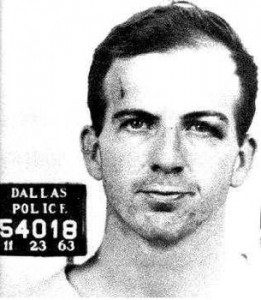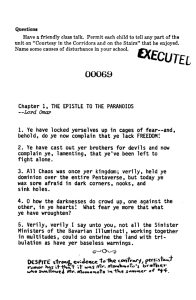A book was written about Lee Harvey Oswal before the Kennedy Assassination
Thornley claimed that, during his initial two-year sojourn in New Orleans, he’d had numerous meetings with two mysterious middle-aged men named “Gary Kirstein” and “Slim Brooks”. According to his account, they had detailed discussions on numerous subjects ranging from the mundane to the exotic, and bordering sometimes on bizarre. Among these was the subject of how one might assassinate President Kennedy, whose beliefs and policies the aspiring novelist deeply disliked at the time. Later, the former Marine came to believe that “Gary Kirstein” had in reality been senior CIA officer and future Watergate burglar E. Howard Hunt, and “Slim Brooks” to have been Jerry Milton Brooks, a member of the 1960s right-wing activist group, “The Minutemen“. Guy Banister, another Minutemen member in New Orleans, had been accused by Garrison of involvement in the assassination and was connected to Lee Harvey Oswald through the Fair Play for Cuba Committee leaflet.[12][13] Thornley also claimed that “Kirstein” and Brooks had accurately predicted Richard M. Nixon‘s accession to the presidency six years before it happened, as well as anticipating the rise of the 1960s counterculture and the subsequent emergence of Charles Manson and what became his cult following. This led Thornley to believe that the US government had somehow been involved, directly or indirectly, in creating and/or supporting these events, personages and phenomena.
In the wake of this period, Thornley came to believe (among many other things) that he had been a subject of the CIA‘s LSD experiments in the MK-ULTRA mind-control research program. While skeptics may dismiss as conspiracy theory some of his later notions – such as having been a product of occult-based Nazi Vril selective breeding programs – his claims regarding participation in such highly-classified US government mind-control programs and foreknowledge of the John F. Kennedy assassination are consistent with the time period, his residences, and the nature and locations of his military service.





No comments:
Post a Comment